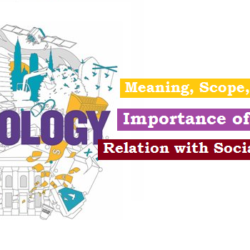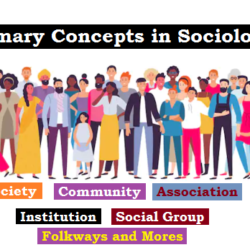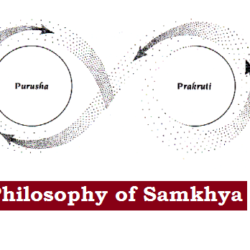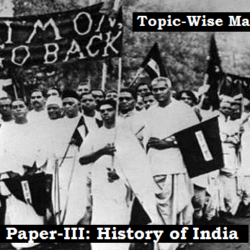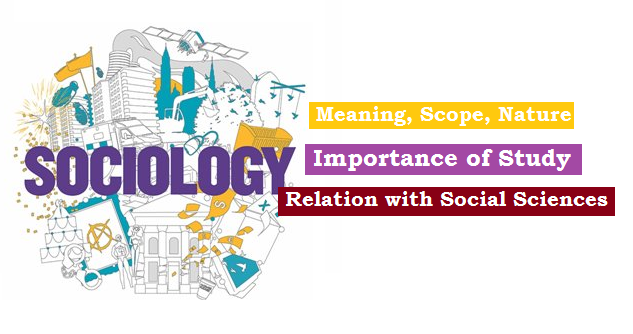
The word sociology is derived from both Latin and Greek origins.
Socius (Latin): Companion ; Logos (Greek): Study
According to Max Weber,
“Sociology is the science which attempts the interpretative understanding of social action in order thereby to arrive at a causal explanation of its cause and effects”
August Comte is considered as the father of sociology as he has not only coined the term but was responsible for establishing sociology as a separate social science.
Meaning and Nature of Sociology
Study of human social life, groups and societies with focus on our own behaviour as social beings.
Sociological study focus not on the norms and values of the society but the way they actual function in actual realities.
The study is based on the observations, findings, and evidences without bias following certain rules that can be checked upon by others.
Observations made are different from that of philosophical or common sense. Philosophical observations are about moral and immoral in human behaviour and about good society; common sense observations are based on the naturalistic explanation of behaviour without questioning its own origin.
Scope of Sociology
Sociology provides very wide scope and offers a specific way of looking at society and helps us to understand it in a better way.
It can focus on various aspects like interaction between individuals and groups, national or international issues (like hunger, unemployment, etc), culture and institutions (like family, society, etc).
Sociology is interrelated with all other social sciences and called as the mother of all social sciences.
Importance of Sociology
Sociology because of its bearing upon many of the problems of the present world has assumed such a great importance that it is considered to be the best approach to all the social sciences. Giddings have rightly pointed out, ‘Sociology tells us how to become what we want to be.’
Importance of its studies lies in the following ways:
- Sociology studies society in a scientific way: Scientific knowledge about human society is needed in order to achieve progress in various fields.
- Sociology focuses on the human beings as part of society: Man as a social animal, why he lives in a group, communities and societies; and their inter-relationship.
- Sociology enables the development of the individuals: Sociology studies social institutions- home, family; school, educations, etc and their role in the development of the individual.
- Sociology leads to a better social life: Knowledge of society, social groups, social institutions, associations, their functions etc. helps us to lead an effective social life.
- Sociology is of great importance in the solution of social problems: It is the task of sociology to study the social problems through the methods of scientific research and to find out solution to them. It helps Govts to implement their schemes effectively.
- Sociology helps to understand the aberrations in human behaviour: Aberrations in human behaviour like crime, unemployment, etc are treated as social problems. The criminals are now treated as human beings suffering from mental deficiencies and efforts are accordingly made to rehabilitate them as useful members of the society.
- Sociology enriches human culture: Sociology has given us training to have rational approach to questions concerning oneself, one’s religion, customs, morals and institutions and enables man to have better understanding both of him and his culture.
Sociology and its Relationship with other Social Science
Sociology is interrelated with all other social sciences and called as the mother of all social sciences. The divisions among the various social sciences are not clear cut and share a certain range of common interests, concepts and methods.
Sociology and Economics:
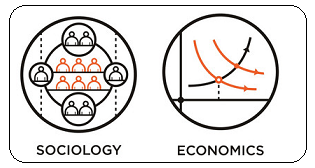
Sociology studies all kinds of relationships while Economics only deals with only economic matters. Traditional economics is the production and distribution of goods and services. It focuses narrowly only on the allocation of scarce resources.
Modern economics focuses on the broader framework of economic behaviour provided by sociological approach, in a broader context of social norms, values, practices and interests.
Sociology and Political Science:
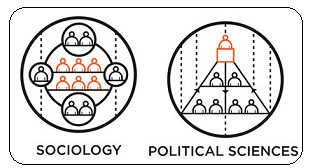
Sociology is a science of society whereas political science is a science of state and government. Conventional Political Science was primarily focused on political theory (idea of Govt) and Govt administration (structure of Govt) rather than actual operation (governance).
Political Sociology focuses on the actual study of political behaviour- pattern of voting, decision making, popularity of a party, etc. It stresses on the inter-relationship between different institutions including Govt.
Sociology and History:
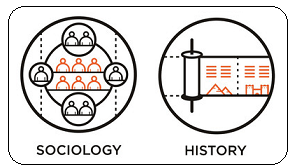
Conventional History only studies about the past based on concrete details. Sociologists are more interested in contemporary or recent past and are likely to abstract from concrete reality, categorize and generalize.
Conventional History has been about kings and war; history of gender relations, society, changes in land relations have traditionally been less studies which sociology focuses on.
Sociology and Psychology:
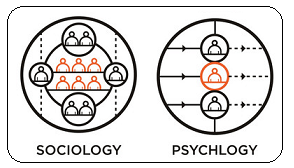
Psychology is the science of human mind primarily focused on the human emotions, Sociology deals with the behaviour of the individual in the society, and different aspects of society which shape the individual.
Sociology and Social Anthropology:
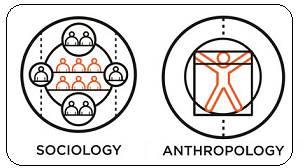
Anthropology is the study of humans and the ways they live. Sociology studies the ways groups of people interact with each other and how their behavior is influenced by social structures, categories (rage, gender, sexuality), and institutions.
Both are considered as ‘sister discipline’, however the differences between them are:
- Anthropology studies human behavior more at the individual level, while sociology focuses more on group behavior and relations with social structures and institutions.
- Anthropologists conduct research using ethnography (a qualitative research method of participant observation, which involves in-depth, repeated interactions with people.), while sociologists use both qualitative and quantitative methods.
- The primary goal of anthropology is to understand human diversity and cultural difference, while sociology is more solution-oriented with the goal of fixing social problems through policy.


 Home
Home Syllabus
Syllabus Contact Us
Contact Us




